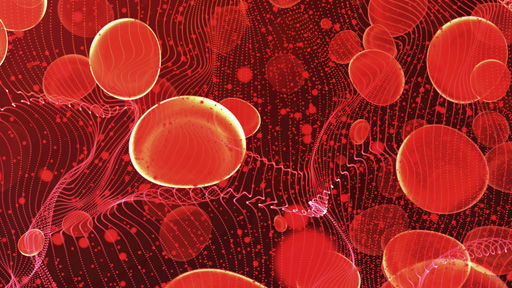A rare donor program is a collaborative effort of many blood centers and/or hospitals to combine their rare donor resources to supply what they have to patients in need. These centers work to identify rare donors by screening methods and inclusion in database systems.
Learn in this episode what resources are available to the medical community to ensure availability for patients in need of blood and why it is critical to national and international collaboration through joint programs.
This educational podcast activity is brought to you by Ortho Clinical Diagnostics, Inc., and is not certified for continuing medical education. Ortho Clinical Diagnostics, Inc. sponsors the program, and the speaker must present information following applicable FDA requirements This episode was recorded on January 15th, 2021. Information in this episode reflects what was known at the time of recording.
About our Speaker:

About our Speaker:
Sandra Nance
MS, MASCP, MT(ASCP)SBB
Sandra Nance has provided leadership to the American Rare Donor Program, American Red Cross Histocompatibility and Immunogenetics laboratories, the National Refer
Ms. Nance held leadership positions in the AABB, ASCP, ICII, and ISBT. She chaired the ISBT Working Party on Rare Donors and conceptualized the ISBT Working Party
She has been inducted into the ASCP and the National Blood Foundation Halls of Fame and has received the AABB’s Sally Frank, John Elliott and President’s Awards,
Sandra Nance has provided leadership to the American Rare Donor Program, American Red Cross Histocompatibility and Immunogenetics laboratories, the National Reference Laboratories for Blood Group Serology, Molecular Testing, Neutrophil and Specialized Testing. She engineered the nationalized American Red Cross SBB Program. She is now a volunteer for the American Red Cross and Emeritus Adjunct Assistant Professor at the University of Pennsylvania in the Department of Pathology and Laboratory Medicine. She earned her Master in Pathology from the University of Maryland and her SBB from The Johns Hopkins Medical Institutions.
Ms. Nance held leadership positions in the AABB, ASCP, ICII, and ISBT. She chaired the ISBT Working Party on Rare Donors and conceptualized the ISBT Working Party on Immunohematology, and as the past Chair, managed the Case Studies.
She has been inducted into the ASCP and the National Blood Foundation Halls of Fame and has received the AABB’s Sally Frank, John Elliott and President’s Awards, AIMS John Moulds, CBBS Suzanne Ledin, MAABB Kay Beattie, New York Supervisors Ron Dubin, and UTMB Jean Stubbins awards. She is the past Editor in Chief of Immunohematology Journal of Blood Group Serology and Molecular Genetics, is a member of Transfusion’s Editorial Board and reviews for several journals. She developed the polyethylene glycol method for serologic testing and the monocyte monolayer assay (MMA) to predict in vivo survival of transfused incompatible red cells. She initiated the International MMA Training classes so other countries can implement the MMA to assist with patients requiring rare blood. Ms. Nance has been invited to present over 250 lectures and has been a frequent contributor to the scientific literature.









